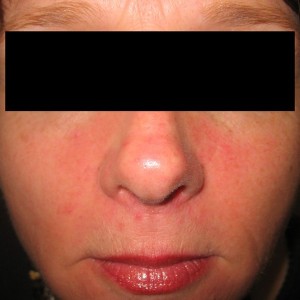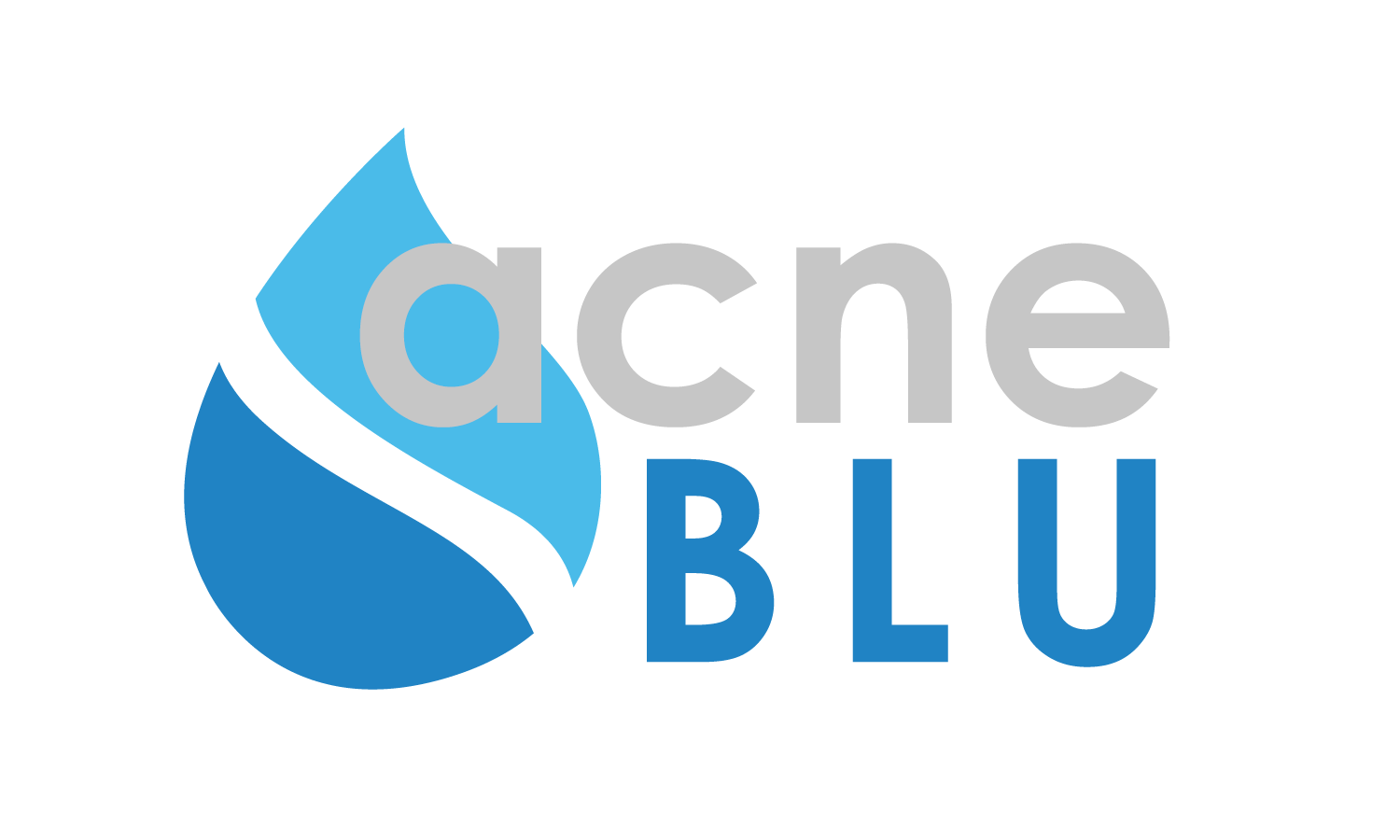2024/07/27 printed from http://dermboard.org All Rights Reserved
 What is rosacea?
What is rosacea?
Rosacea is a common, long-lasting skin disease of an unknown cause, and without a known cure, that usually affects central face and chin in the form of persistent redness that can also have a small pus bumps and red bumps. Rosacea is not a contagious disease. It usually occurs in middle-age people with fair skin. It sometimes may occur in the eyes causing irritation and redness. Rosacea may resolve on its own after several years in about half of cases.
How does rosacea look like and how does it feel?
Rosacea usually involves convex (protruding) surfaces of the central face (forehead, nose, cheeks and chin). It may look like a diffuse redness without pimples, redness with pimples, sometimes with skin thickening especially on the nose (medical name is rhinophyma). People who have rosacea frequently complain of flushing, especially after drinking alcoholic beverages,and/or eating spicy or hot foods. It can cause itching, burning or a stinging sensation. Rosacea may also involve eyes, especially in people who had sties in the past. When it involves eyes it may cause irritation, gritty feeling, burning, itching, tearing and eye redness.
OK, I have pimples and redness on my face, but how is it different from acne then?
Rosacea is usually redder and it does not have blackheads (comedones) compared to acne.
Should I treat rosacea myself?
There is no cure for rosacea, but you can give a try to over-the-counter acne medications while waiting on an appointment with your health care provider. Look for over-the-counter acne treatments that contain no more than 2.5% of benzoyl peroxide and acne washes or cleansing pads that contain up to 2% of salicylic acid. Be gentle while washing your face and use diluted mild soaps. Â If nothing else, you should apply sunscreens daily.
Should I see my health care provider?
Absolutely! It is always wise to see your health care provider for an initial exam and for a correct diagnosis, and to exclude something more serious such as lupus erythematosus that can look like rosacea.
What is the treatment for rosacea?
You should apply sunscreens every morning. In addition there are medicines that can help make the disease milder or even inactive, but there is no permanent cure as of yet. Usual treatments are medicines that you apply to the skin such as metronidazole cream or gel (brand names: MetroCream, MetroGel, Noritate), azelaic acid creams and gels (brand names: Azelex, Finacea), sulfacetamide/sulfur washes and creams (brand names: Plexion, Rosanil and  Rosac), brimonidine gel (brand name: Mirvaso) and newly approved ivermectin 1% cream (brand name: Soolantra). Lasers (PDL) can also help, as well as Intense Pulsed Light (IPL). If the rosacea is severe, or if it involves eyes, then oral antibiotics should also be used, such as doxycycline (brand names: Adoxa, Doryx, Monodox, Oracea, Periostat and Vibramycin), minocycline (brand names: Dynacin, Minocin and Solodyn),  and tetracycline (brand name: Sumycin). In addition, any patient with eye involvement should also be examined by an eye doctor (ophthalmologist).
Will my rosacea ever go away?
Per one study about half of people with rosacea became rosacea-free after on average 9 years.
